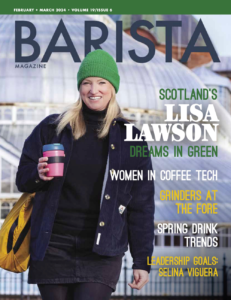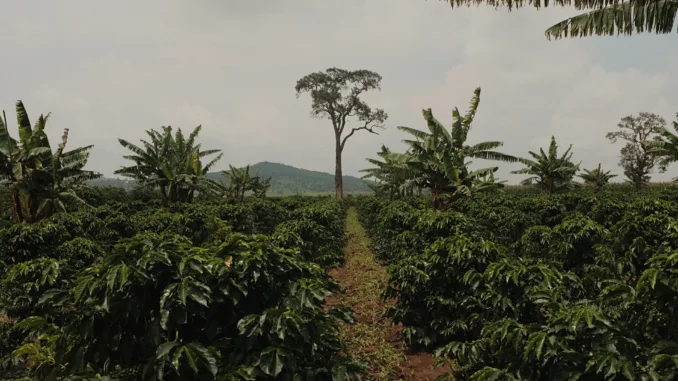
Coffee has been grown in Tanzania for centuries; now newer varieties are taking hold in the country’s Songwe region.
BY MICHAELA TOMCHEK
SPECIAL TO BARISTA MAGAZINE
Photos by Michaela Tomchek
The Haya tribe in the northwest of Tanzania has been growing robusta since the 16th century. Today, the growing regions have spread throughout the north and the south of the country, with Compact, Kent, and N39 being common varieties. Roughly 6% of the population of Tanzania (2.4 million people out of 45 million) is involved with coffee production; coffee makes up about 5% of Tanzania’s export revenue.
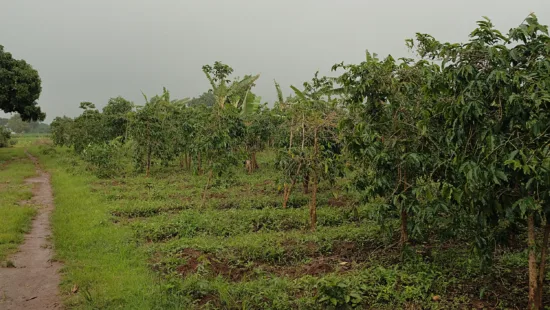
AMCOS Groups at Work in Songwe
Thanks to the guidance of Agricultural Marketing Cooperative Society (AMCOS) groups, farmers in Tanzania have plenty of resources and support to make a livelihood growing coffee. Ninety percent of coffee production in Songwe comes from smallholder farmers, so that support is critical to the process of delivering cherries, receiving payment, and having coffee processed and sold via the market or directly to an exporter.
The Songwe region, in the southern reaches of the country and bordering Zambia and Malawi, is rich with coffee production. Bananas and maize dominate the hillsides when traveling from Mbeya city to Songwe.
There are several AMCOS groups working with Coffee Management Services (CMS) to purchase, process, and sell coffee from farmers in the region.
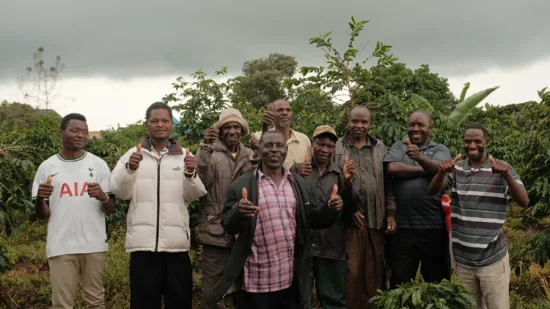
Msunte AMCOS
One of these groups is the Msunte AMCOS, started in 2022 and led by a board of seven. There are 130 farmers belonging to this AMCOS, nine of which are women. Farmers bring their fresh cherries here to be examined and to get partially paid before the cherries are blended with other farms to be pulped via machine. There are fermentation tanks here for the coffee to sit and break down the external mucilage before being washed and spread on tables to dry in the open sun. The AMCOS then sends the dried coffee to the CMS dry mill, roughly an hour away, to be hulled, cupped, and prepared for selling.
Bahanko AMCOS
Another group doing similar work in Songwe is the Bahanko AMCOS. Roughly two years old, this AMCOS is made up of 503 farmers, 45 of which are women. Typically, farmers have around one hectare of land, growing Compact or N39 varieties. Farmers will bring their cherries to the AMCOS to be weighed and sorted, receiving a portion of the payment immediately. The AMCOS is then responsible for processing and delivering coffee to the CMS dry mill.
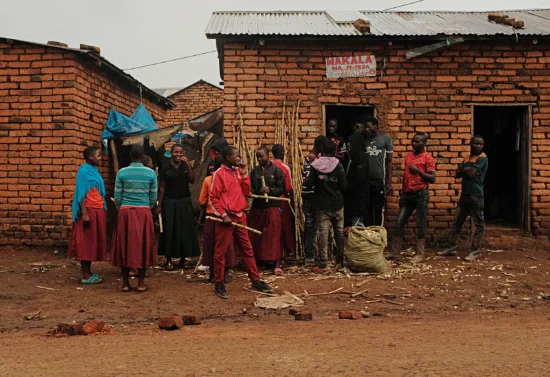
Seedling Support & Increased Yields
Yields have been increasing in Tanzania. The Bahanko board reports that the recent harvests have been excellent. The government and a local NGO have donated seedlings to promote coffee production in Tanzania. Farmers will also typically grow maize, beans, nuts, and avocado to diversify income and to consume in their homes.
The Tanzanian government has been supporting the coffee industry, striving to disperse free Compact seedlings to improve production. Additionally, agronomists employed by the government visit the farms to assist with any agricultural advice.
One unique case is that of Maneno Namayala, who acquired his land in 2004 from his father and has gradually expanded to encompass 12.5 hectares. This is quite large for a farmer in this region of Tanzania. Maneno also has his own processing facilities to pulp and dry his coffee. The farm is planted with Compact, Kent, and N39 and intercropped with bananas. Something else special about Maneno? He roasts and drinks his own coffee, which is quite unusual in Tanzania, where the most popular beverage is tea.
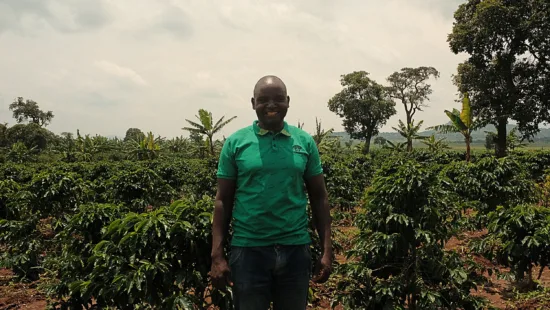
What’s In Store for Songwe?
Coffee spread here much later compared to the north of the country, making the hard work of the locals evident in the beautiful farms they’ve planted. The AMCOS groups work diligently to improve production and support the many farmers in the region. As production continues to rise, we’re hoping the world will see more Tanzanian specialty coffee in the future.
ABOUT THE AUTHOR
Michaela Tomchek finds coffee an important part of life and the world. She is an appreciator of the crop, the producer, and the many cafés throughout the world serving beautiful beverages. Currently, she writes about coffee, hoping to spread her joy across the globe.
Subscribe and More!
Out now: It’s the February + March 2024 issue of Barista Magazine! Read it for free with our digital edition. And for more than three years’ worth of issues, visit our digital edition archives here.
You can order a hard copy of the magazine through our online store here, or start a subscription for one year or two.

